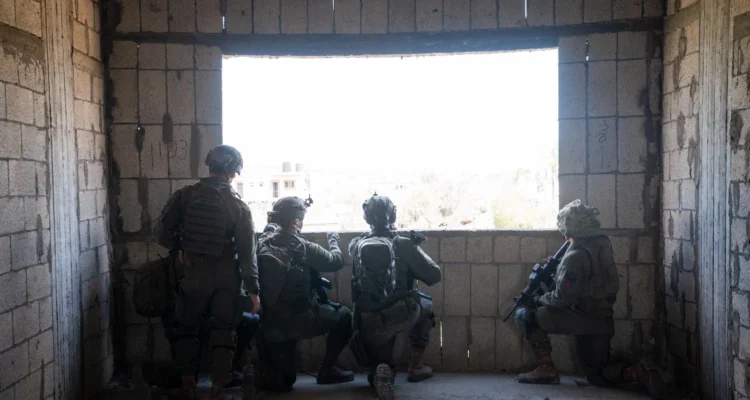The report also details that Israeli defense officials have agreed on a strategy for ‘the day after’ Hamas is defeated, with Ramallah playing a role.
By JNS
Israel will not engage in a full-scale military offensive in Gaza’s southernmost city of Rafah. Instead, it will continue its limited operation in the last Hamas bastion, with the blessing of the Biden administration, according to Washington Post analyst David Ignatius.
In an opinion piece published on Monday citing sources familiar with the matter, the newspaper’s senior commentator wrote that the framework for eventually ending the Gaza war became more clear after a just-wrapped trip to Saudi Arabia and Israel by U.S. National Security Advisor Jake Sullivan and Brett McGurk, the U.S. National Security Council’s coordinator for the Middle East and North Africa.
“Israeli leaders have reached a consensus about a final assault on Hamas’s four remaining battalions in Rafah. Instead of the heavy attack with two divisions that Israel contemplated several weeks ago, government and military leaders foresee a more limited assault that U.S. officials think will result in fewer civilian casualties and, for that reason, Biden won’t oppose,” said Ignatius.
“At least 800,000 of the roughly 1.5 million Palestinians who had gathered in Rafah have left, U.S. officials believe,” he added.
Ignatius also wrote that Israeli defense officials have agreed on a strategy for “the day after” Hamas is defeated, with Ramallah playing a role.
Israeli Prime Minister Benjamin Netanyahu is against Palestinian Authority involvement in governing Gaza given its support for terrorism, a stance Ignatius acknowledges.
The post-Hamas Gaza “will include a Palestinian security force drawn in part from the Palestinian Authority’s administrative payroll in Gaza. This Palestinian force will be overseen by a governing council of Palestinian notables, backed by moderate Arab states such as Egypt, Jordan, the United Arab Emirates and Saudi Arabia,” he said.
Ignatius also highlighted the potential diplomatic breakthrough with the Saudis during Sullivan’s early Sunday meeting with Crown Prince Mohammed bin Salman, in which Riyadh said that a draft security agreement with Washington is nearly finalized, and the two sides are working on “the Palestinian issue” to “find a credible path” forward.
This agreement would include normalization with Israel.
Netanyahu’s right-wing and religious coalition remains opposed to many of the proposed ideas for ending the war, Ignatius acknowledged, writing that “the final dealmaking might fall to a future Israeli government.”
Another potential obstacle to the war winding down is Monday’s decision by the International Criminal Court prosecutor to seek arrest warrants for Netanyahu and Defense Minister Yoav Gallant, as well as Hamas terror leaders. U.S. President Joe Biden called it “outrageous” to draw a moral comparison between Israel and Hamas.
An Israeli source told Ignatius that the ICC “changes everything, in a way we are yet to understand.”





